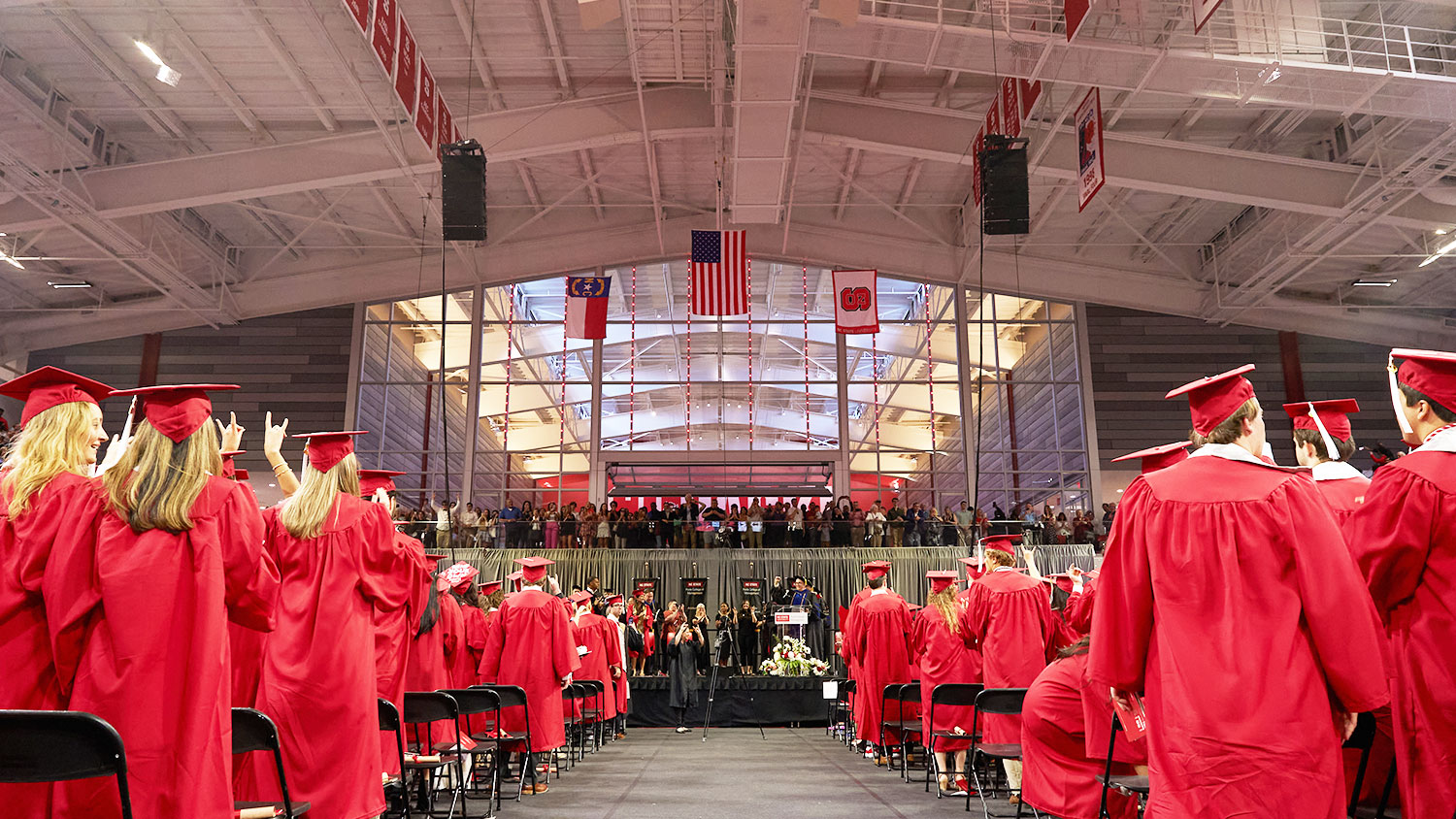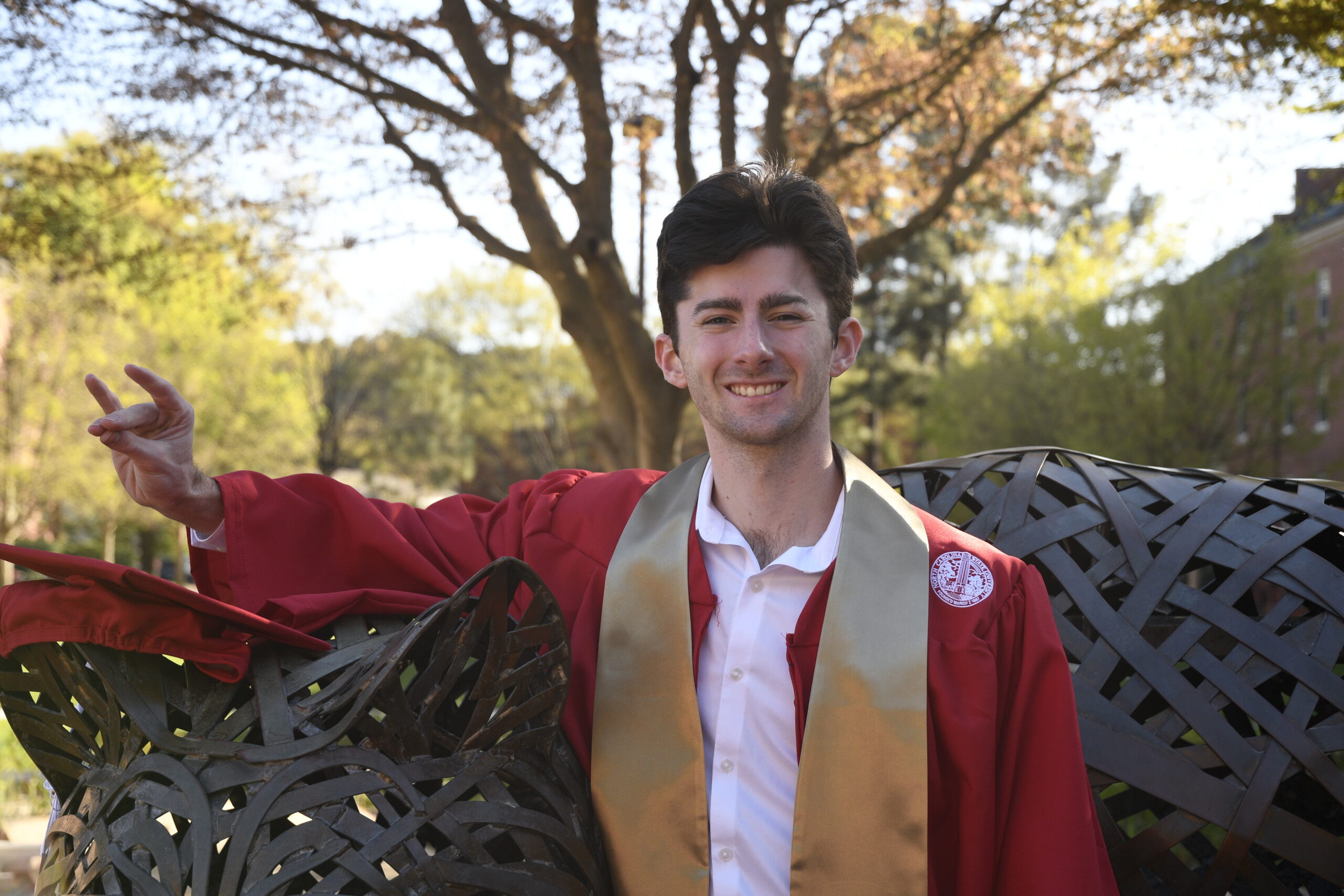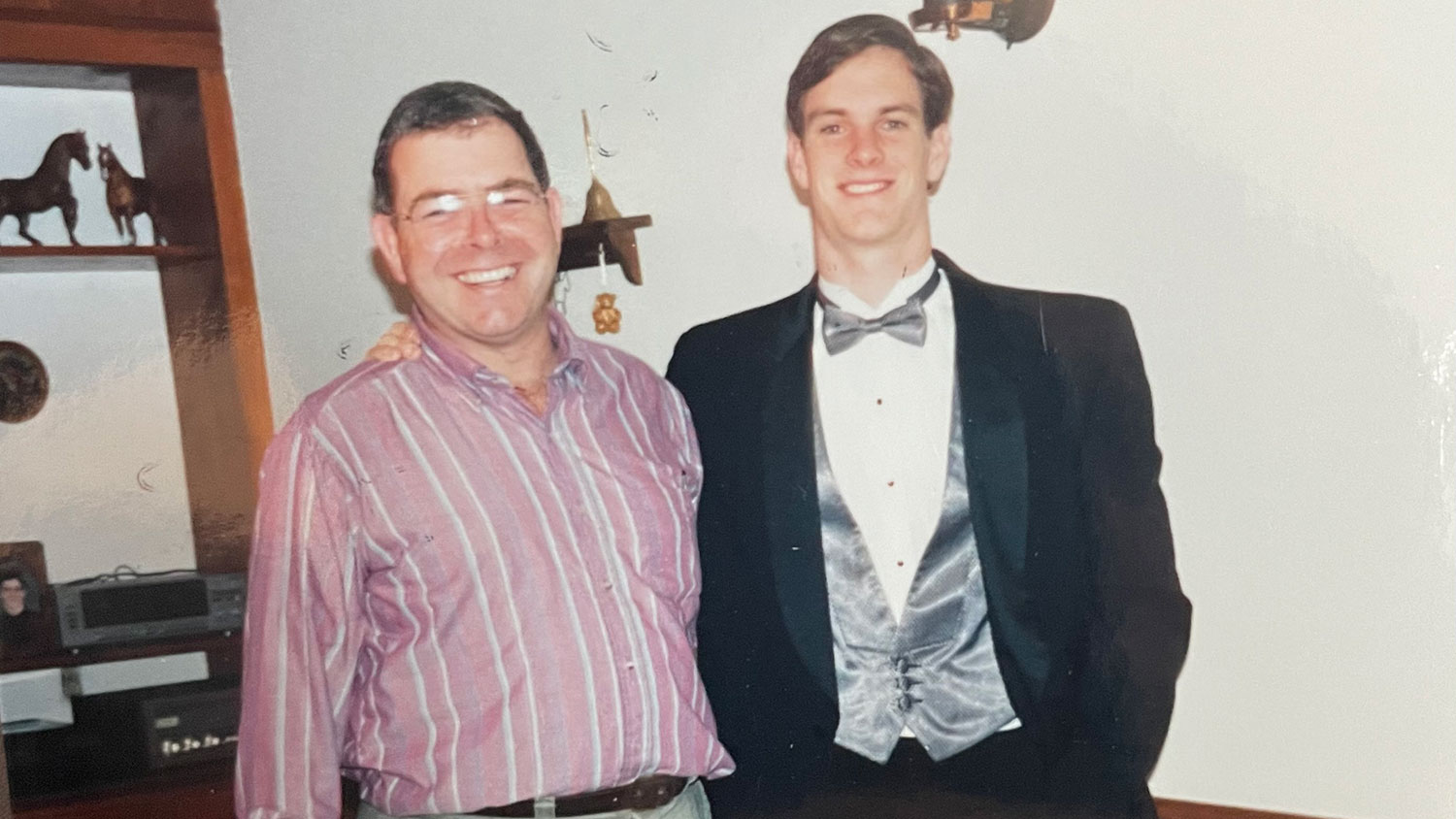Jenkins MBA team wins $10K grand prize in LES International Competition for WarpSpec startup
WarpSpec, Inc., a startup that began as an NC State Poole College Jenkins MBA team project with an innovative approach to detecting food-borne pathogens, was named the grand prize winner by the Licensing Executives Society (LES) Foundation in late April.
The prize carries with it a $10,000 award to support further work on the startup by its founders, Rafael Estevez and Jordan Moering. Both graduated this weekend, Estevez with his Jenkins MBA and Moering, with the College of Engineer’s master’s degree in materials science and engineering.
The Licensing Executives Society (LES) Foundation announced in late April that the two had won first prize in its 2015-2016 International Business Plan Competition, a program that focuses uniquely on the intellectual property (IP) aspects of business strategy. Moering said he and Estevez reearched competitions that they could enter and “the LES Foundation's emphasis on the IP position of hi-tech startups was a great fit for our team.”
Estevez co-founded the startup with Moering in May 2015 following a fall 2014 semester entrepreneurship class in the Jenkins MBA program's entrepreneurship and technology commercialization (HiTEC) concentration, where both were students. “We saw a lot of potential and after we completed the class, we decided to continue on,” Estevez said.
WarpSpec is developing an in-line system that scans meat products in real time for pathogens like Salmonella. They convincingly argued that their technology could save billions of dollars in lost product shelf life while promoting food safety. The judges cited WarpSpec for an exceptional business plan strongly supported by its IP strategy.
“The funds from the competition will allow us to continue developing the technology, which is core to our business model. We’re currently prototyping our technology through a grant we won with the Research Triangle Nanotechnology Network (RTNN), and so these funds will aid in those research efforts,” Moering said.
WarpSpec also placed first in the 2015 NC State Lulu eGames New Venture Challenge and have mentored a team of MBA students through the NC State Entrepreneurship Clinic, part of the Poole College of Management’s entrepreneurship program based in HQ Raleigh, a shared environment for entrepreneurs in downtown Raleigh.
“Jordan Moering and Rafael Estevez are wonderful examples of the entrepreneurial leadership demonstrated by HiTEC students. Their experience in HiTEC is an enduring one that they will be able to build from successfully as they continue in their careers. It’s always a privilege to work with such talented and committed students and entrepreneurs,” said Raj Narayan, associate director for the Kenan Institute for Engineering, Technology & Science and professor in the HiTEC program.
Speaking of his Jenkins MBA experience, Estevez said that, “as a HiTEC Entrepreneurship Scholar in the MBA program, I've had the opportunity to work with and lead a variety of multidisciplinary teams on numerous projects, some of which won prestigious business competitions over the past two years. My MBA has provided me the skill sets needed to make a difference in the world, which is the core principal driving my interest in entrepreneurship and technology commercialization.”
He and Moering met during their first technology, entrepreneurship and commercialization (TEC) class during fall 2014, where, he said, “we immediately connected over our passion for entrepreneurship. Over the following year, we began building the foundation of what would eventually become WarpSpec. Although several students came and went during the course of the TEC program, Rafael and I became inseparable, working countless late nights scrutinizing every detail of our business plan. After winning the 2015 Lulu E games, we decided to incorporate the company and begin the commercialization process that led us to the LES victory.”
Moering said that he started his doctoral program in material science engineering, in NC State's College of Engineering, in 2013, where his research focused on strengthening mechanisms in advanced metallic composites. “I've always been fascinated with the profound impact scientific advancement has had on our world, and think there is a real lack of new technology hitting the market. The TEC program's focus on bridging the gap from the lab to the market really made me think about the bigger picture of academic inquiry which accelerated my own research,” he said.
About LES and the LES Business Plan Competition
The LES Foundation was established in 2000 by the Licensing Executives Society, (USA & Canada), Inc., in an effort to increase awareness and understanding of licensing and intellectual property (IP) rights and to communicate the critical role licensing plays in bringing creations and innovation to the commercial marketplace. The foundation works to promote mentorship and to educate young professionals about the world of IP and licensing through two key programs, the International Graduate Student Business Plan Competition and the Frank Barnes Mentor Award Program. Each program offers IP education, professional networking and valuable mentorship opportunities aimed at fostering the development of future leaders in the licensing community. The LES Business Plan Competition, directed and developed by LES Foundation Vice President Annemarie Meike, is now in its 12th year. It is designed to partner professionals and student start-up companies that have received less than $200,000 of investment funding, with senior leaders in the licensing and IP community as a way to provide mentorship and education about business basics and best practices in IP and licensing transactions.
Approved plans submitted to the competition must include a core intellectual property component and strategies describing how the intellectual property will be used to achieve overall business plan objectives. For more than a month, LES members mentored six finalist teams from Canada, Columbia, the United States, and Uganda, on intellectual property strategy aspects of their plans in preparation for the final phase of the Competition, which was hosted at Berkeley Research Group offices, Houston, Texas. The six competitors presented business plans and videos in live virtual sessions, and responded to questions from a panel of 10 on-site and at-large global experts, representing more than 200 collective years of business and IP strategy experience.
The finalist competition was held in conjunction with the Licensing Executives Society Spring Meeting, Houston, Texas. The 2016-2017 competition will be announced in early fall. To learn more about the LES Foundation and the International Business Plan Competition, visit www.lesfoundation.org.


